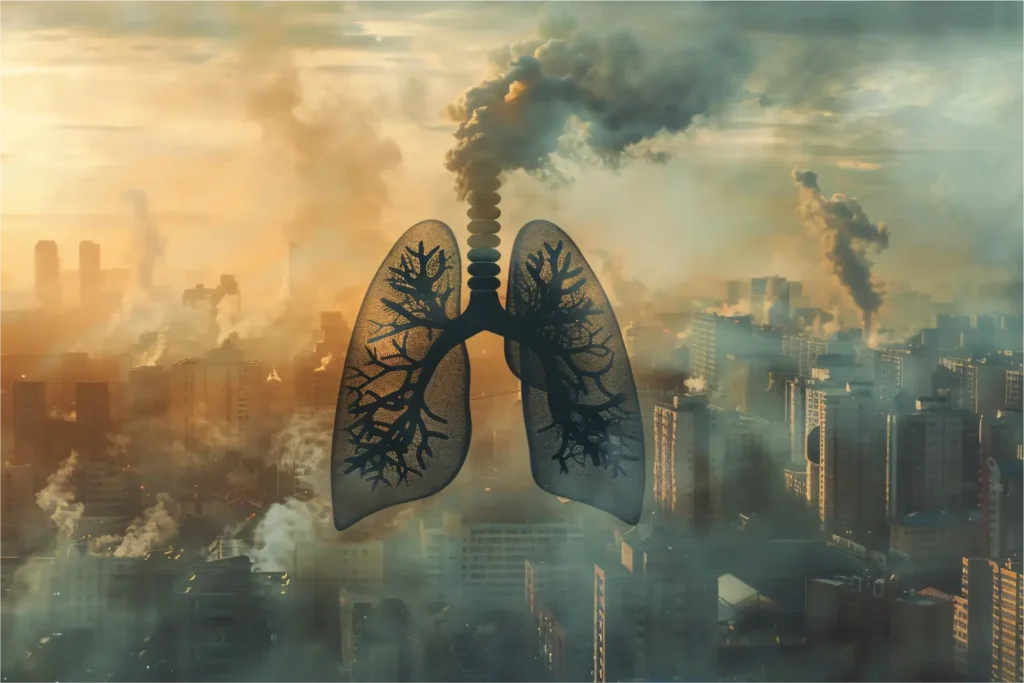
An international genome study suggests that air pollution could be a major trigger behind the rise in lung cancer cases in non-smokers.
The study, led by researchers at the University of California San Diego (UCSD), has found a strong association between exposure to outdoor air pollution, like smog and soot, and DNA mutations commonly identified in lung cancer patients. Researchers discovered that the more polluted the environment, the more mutations are detected in patients’ tumours.
The researchers examined tumour samples from 871 non-smokers with lung cancer across four continents. Participants had not received cancer treatment at the time of testing.
Also Read | The link between smoking and lung cancer
“We’re seeing this troubling trend of rising lung cancer rates among never-smokers,” said Ludmil Alexandrov, a biomolecular scientist at UCSD. “Our research shows that air pollution is strongly associated with the same types of DNA mutations we typically associate with smoking.”
Non-smokers in highly polluted regions were nearly four times more likely to have the SBS4 mutation signature, a marker strongly tied to tobacco-related lung cancers, compared to those in cleaner areas. They were also more likely to have mutations in cancer-driving genes like TP53 and EGFR, as well as shorter telomeres, which are linked to accelerated ageing and cancer progression.
Interestingly, while secondhand smoke is a known cancer risk, this study found only a slight increase in mutations among those exposed, suggesting air pollution may have a more potent mutagenic effect.
The study also identified a new mutation signature, SBS40a, that is present in 28% of non-smoking tumours but absent in smokers. The origin of this signature remains unknown and is not believed to be environmental, highlighting an entirely new area for research.
Despite limitations, including reliance on regional pollution data rather than personal exposure, the findings support growing concerns that breathing polluted air may trigger tumour development in ways similar to cigarette smoke.
“This is an urgent and growing global problem,” said Dr. Maria Teresa Landi, epidemiologist at the US National Cancer Institute. The research team now plans to broaden the study across more diverse global populations to better understand how air pollution contributes to lung cancer in non-smokers.








